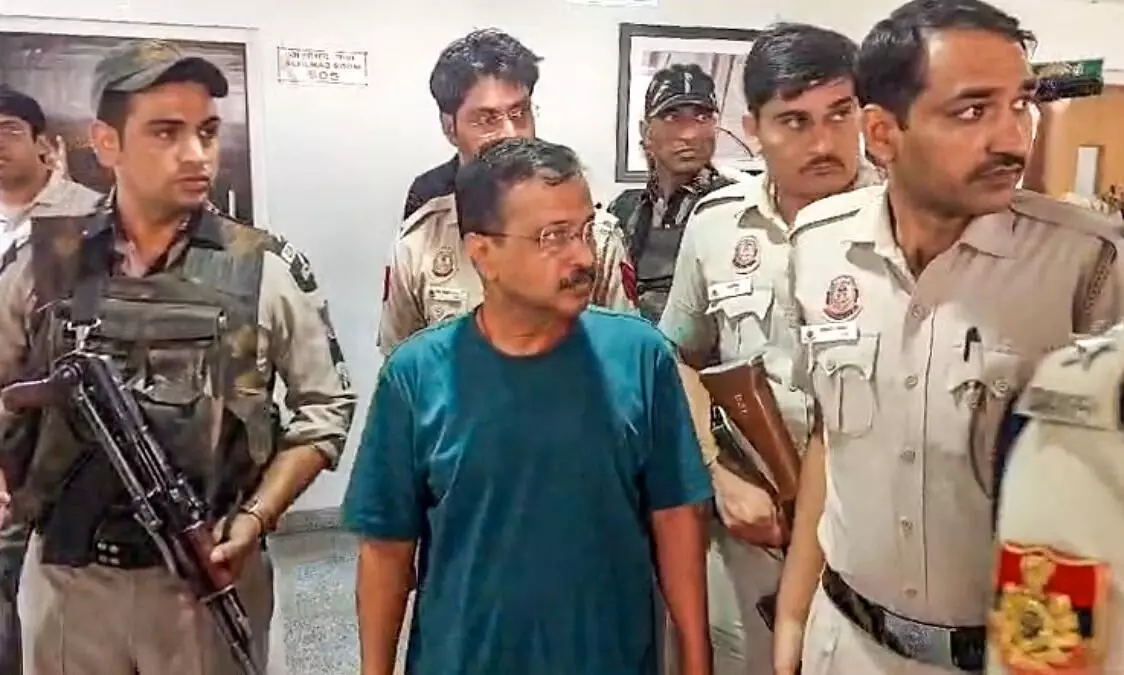
CBI justifies Arvind Kejriwal’s arrest in liquor policy case, calls it essential for investigation
text_fieldsThe CBI has defended the arrest of Delhi Chief Minister Arvind Kejriwal in the liquor policy case, claiming that his detention was crucial for the fair conclusion of the investigation.
The CBI alleged that Kejriwal, who is also the leader of the Aam Aadmi Party (AAP), played a significant role in crafting the now-revoked liquor policy, which has been at the center of the controversy.
In an affidavit filed with the Supreme Court on Thursday night, the CBI argued that Kejriwal's arrest was justified due to the alleged evidence of his involvement and his purported lack of cooperation with the investigation. The affidavit was submitted in response to a petition by Kejriwal challenging his arrest by the CBI.
The CBI claimed that Kejriwal's actions were not only illegal but also part of a broader conspiracy involving financial misconduct and the misuse of public office. The agency further accused Kejriwal of attempting to "politically sensationalize" the case before the Supreme Court, despite the fact that lower courts had already concluded that a crime had been committed.
The Delhi High Court had previously rejected Kejriwal's bail plea, stating that his arrest could not be considered unjustified or illegal. Kejriwal has since appealed the High Court's decision in the Supreme Court.
On August 14, the Supreme Court denied Kejriwal's request for interim bail and issued a notice to the CBI to respond to his petition. The case was scheduled for a hearing on Friday, but the Supreme Court postponed the proceedings until September 5 after the CBI requested additional time to file a counter-affidavit in another related petition.
Senior Advocate Abhishek Manu Singhvi, representing Kejriwal, accused the CBI of deliberately delaying the filing of the counter-affidavit, submitting it late on Thursday night so it would not reach the court in time.
Kejriwal was granted interim bail by the Supreme Court on July 12 in a separate case brought by the Enforcement Directorate (ED) related to the alleged liquor policy scam. However, he remained in jail after the CBI arrested him in connection with the same matter on June 25.
The ED had initially arrested Kejriwal on March 21, with their case based on a First Information Report (FIR) filed by the CBI. The central agencies have alleged that the AAP government altered Delhi's now-canceled liquor policy by increasing the commission for wholesalers from 5% to 12%. This change allegedly enabled the receipt of bribes from wholesalers with significant market share and turnover.
The Supreme Court is expected to continue hearing the case on September 5, with the CBI's counter-affidavit playing a critical role in the ongoing legal proceedings.

















